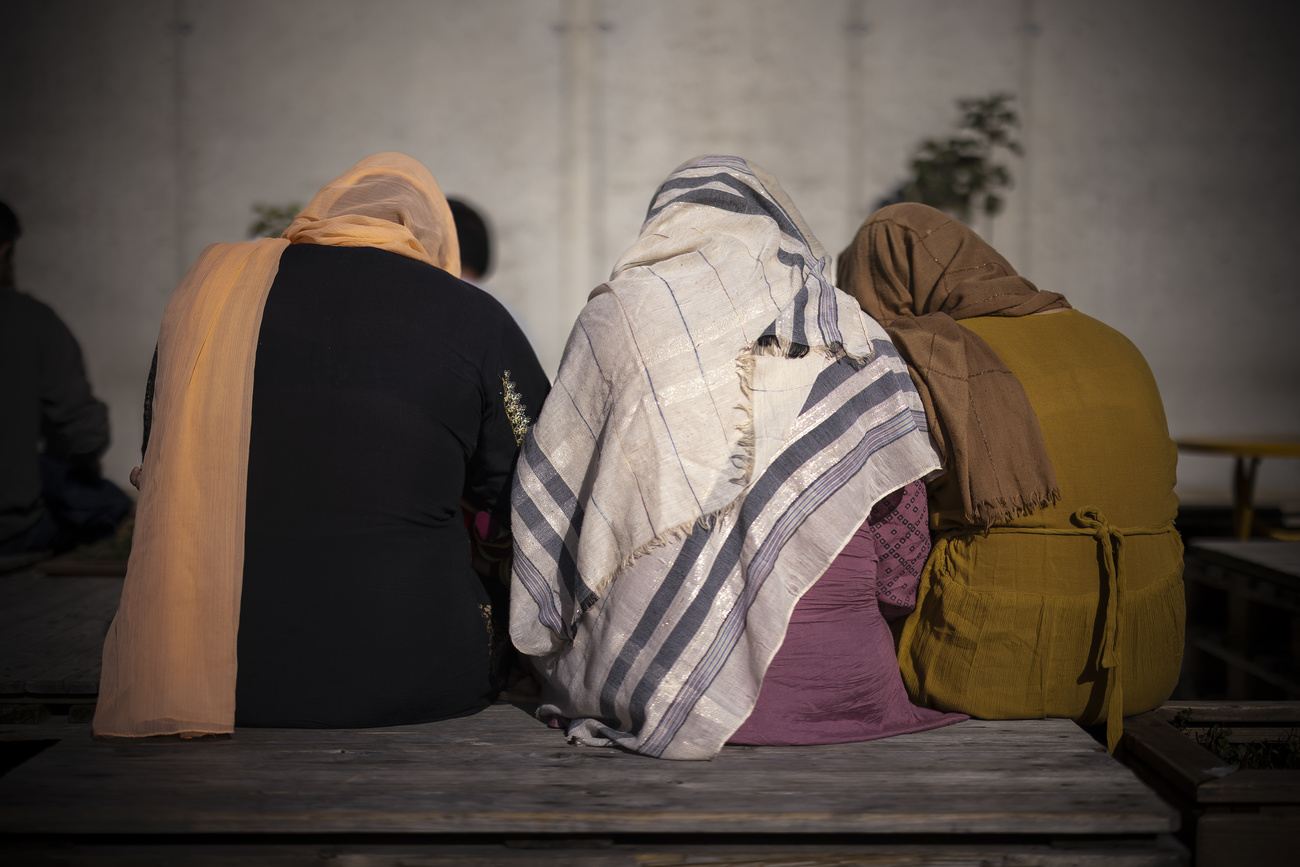
Asylum cases increased in 2022, not counting Ukrainians

Switzerland's State Secretariat for Migration (SEM) says it received 24,511 asylum applications in 2022, without counting Ukrainians who are eligible for a special protection status.
That represents a 64.2% increase (9,583 additional applications) relative to the previous year. Another 27,000 new asylum applications are expected in 2023.
Several factors explain the uptick in applications. Travel has become easier as countries have lifted most restrictions on movement introduced to cope with the Covid-19 pandemic.
At the same time, the pandemic has weakened many economies in the countries of origin and transit of refugees and migrants, the SEM noted in a statement on Monday. This, coupled with rising prices due to the Russian attack on Ukraine, has pushed more people to migrate.
Turkey was cited as an example. The country has been putting pressure on the 3.5 million Syrians and an estimated 200,000 to 300,000 Afghan nationals within its borders to return home. This has led to an increase in migration of these nationals towards Europe. Turkey is a major departure point for many asylum-seekers and migrants hoping to reach Europe.
Pending cases
More liberal visa regulations in individual countries have also facilitated travel to Europe. Afghanistan was the most represented country among asylum-seekers, with 7,054 applications. The Islamist Taliban movement took over Afghanistan in August 2021, triggering an economic collapse and complicating the delivery of foreign aid to an already impoverished nation.
Large numbers of asylum-seekers hailed from Turkey and Eritrea, one of the poorest countries in Africa. Fewer than one in three people seeking asylum were granted protection at first instance (30.6% in 2022 compared to 37% in 2021). Thousands of cases were left pending.
The authorities also noted a major increase in departures in 2022. It said 8,333 people left Switzerland by their own means, compared to 973 in 2022. Another 1,820 people were returned either to their country of origin or to a third state.
Special status Ukrainians
By the end of 2022, Switzerland had received 74,958 applications from Ukrainians seeking special protection status S. The special permit was introduced in March 2022, less than a month after Russia invaded Ukraine. It allows Ukrainians fleeing the war to skip ordinary asylum procedures and grants them the right to reside and work in Switzerland. The vast majority of S status applications –72,611– were successful.
European solidarity with Ukrainian refugees has been commended. But rights groups have also pointed out that this welcoming approach stands in sharp contrast with how asylum-seekers from non-European nations are treated and portrayed in the media.

In compliance with the JTI standards
More: SWI swissinfo.ch certified by the Journalism Trust Initiative



























You can find an overview of ongoing debates with our journalists here . Please join us!
If you want to start a conversation about a topic raised in this article or want to report factual errors, email us at english@swissinfo.ch.